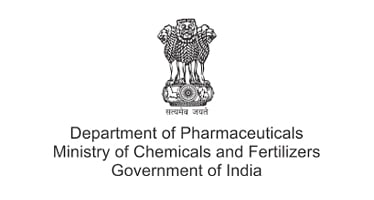Last Updated on July 18, 2022 by The Health Master
The SME Pharma Industries-Confederation (SPIC), a body of thousands of small-scale pharma units in the country, has appealed to the department of pharmaceuticals (DoP) to reduce the prices of Indian Pharmacopoeia 2022 for MSMEs, which have repeatedly suffered owing to policy changes.
“The 2022 edition of IP is priced at approximately Rs. 60,000.”
“Obviously, the price is no issue for big pharma but MSMEs do not afford it, especially units that were outside the Excise Free Zones (EFZ) from 2005 to 2017, since they bore an excise burden of 30 per cent owing to an anomaly in MRP excise levied in 2005 whereas units in EFZ were exempt for this prolonged period.”
“Due to this, MSMEs outside EFZ were rendered unviable while those who migrated to EFZ enjoyed it at their expense.”
“Now when such expenses are made mandatory, there cannot be parity,” said Jagdeep Singh, secretary general of the confederation.
The Indian Pharmacopoeia Commission (IPC) in a virtual meeting with the industry recently made clear that action will be taken against pharma units that do not purchase the original Indian Pharmacopoeia.
The MRP-based excise was introduced as a deterrent to higher MRP. Despite repeated requests by the Department of Chemicals and Petrochemicals (C&PC) of the ministry of chemicals and fertilizers, chief ministers and intervention even by the Prime Minister, the Finance Ministry refused to address the problem.
With an aim to improve the quality of drugs sold in the country, the Union health and family welfare ministry on July 1, 2022, released the 9th edition of IP 2022 containing the following:
9th edition of IP 2022 containing:
- 92 new monographs for drugs,
- 12 new general chapters,
- 1,245 monographs for formulations,
- 930 monographs for active pharmaceutical ingredients (APIs) as well as dissolution specifications for all prolonged release formulations.
Also, read related news: 9th edition of IP released containing 3,152 Monographs
Of the 92 new monographs, there are:
- 60 chemicals,
- 21 vitamins, minerals, amino acids, fatty acids etc.,
- 3 biotechnology-derived therapeutic products,
- 4 human vaccines,
- 2 blood and blood-related products,
- 2 herbs and herbal-related products,
- 7 phytopharmaceutical ingredient categories monographs.
Besides this, IP 2022 also contains 652 pharma reference substances covering 70 per cent requirement of reference materials used for quality control in the country.
Currently, there are 300 impurity standards in IP which are crucial for managing pharmaceutical quality.
It also includes Remdesivir API and injection monographs, favipiravir API and tablets monographs, 2DG API & powder & sachet monographs, and Rapid microbiological testing—draft chapter.
This has led to the total number of 3,152 monographs in the current edition of IP. Several monographs and general chapters have also been revised to update them as per current global requirements and to harmonize with other pharmacopoeias like USP, BP, EP, etc.
As per the information uploaded by the Indian Pharmacopoeia Commission (IPC) on its website, four volumes of IP are priced at Rs. 49,000 for academia who have attended the IP launch conference on July 1 while industry representatives, who participated in the conference, can buy it for Rs. 47,500.
Besides IP pricing, Singh also raised the issue of drug regulatory authorities’ lack of respect for IP.
He said “Safety, efficacy and standards of an item are established before inclusion in the IP. The product monograph of each item in IP also lays down the description, pH, testing method and dosage form etc.
Obviously, the concerned API also has the approval of DCGI before a product is included in IP. But many items covered in the IP are restricted. State licensing authorities cannot allow their manufacture.
The DCGI holds the Drugs and Cosmetics Act 1940 as supreme when compared to the IP because the DCGI directive and definition of New Drug under Rule 122 E of the D&C Act states that any drug which is not approved by the DCGI shall remain under the scope of the definition of new drug irrespective of its inclusion in IP.”
“Under the above conditions, do we presume that the concerned authorities do not wish to recognize the country’s Pharmacopoeia? In that case, why should anybody be forced to buy the expensive IP when it has little significance? Prior to amendment in the definition of New Drug in Rule 122 of D&C Act, IP had significant respect,” he opined.
SPIC has urged the DoP to resolve the matter on merits and issue appropriate directions to DCGI so as to restore the significance of IP whereafter it may be provided at a quarter the existing price to MSMEs.
Latest Circulars: (IPC) Indian Pharmacopoeia Commission
Latest Notifications regarding Pharmaceuticals
Latest on National Formulary of India (NFI)
FAQs on Monkeypox by WHO: Must read
NPPA’s panel recommends retail price fixation of Sitagliptin combinations on 26 applications
Chief Secretary to look into concerns of drug manufacturers
CDSCO releases draft guidance documents on IVD Medical Devices
Highlights: Drugs, Medical Devices and Cosmetics Bill 2022
USFDA approves first eye drop that can eliminate the need for reading glasses
Quality certificates of Medical Devices by other entities not a replacement for license: CDSCO
Drug alert: 26 out of 1096 samples declared as NSQ in June 2022
Latest Notifications regarding Pharmaceuticals








